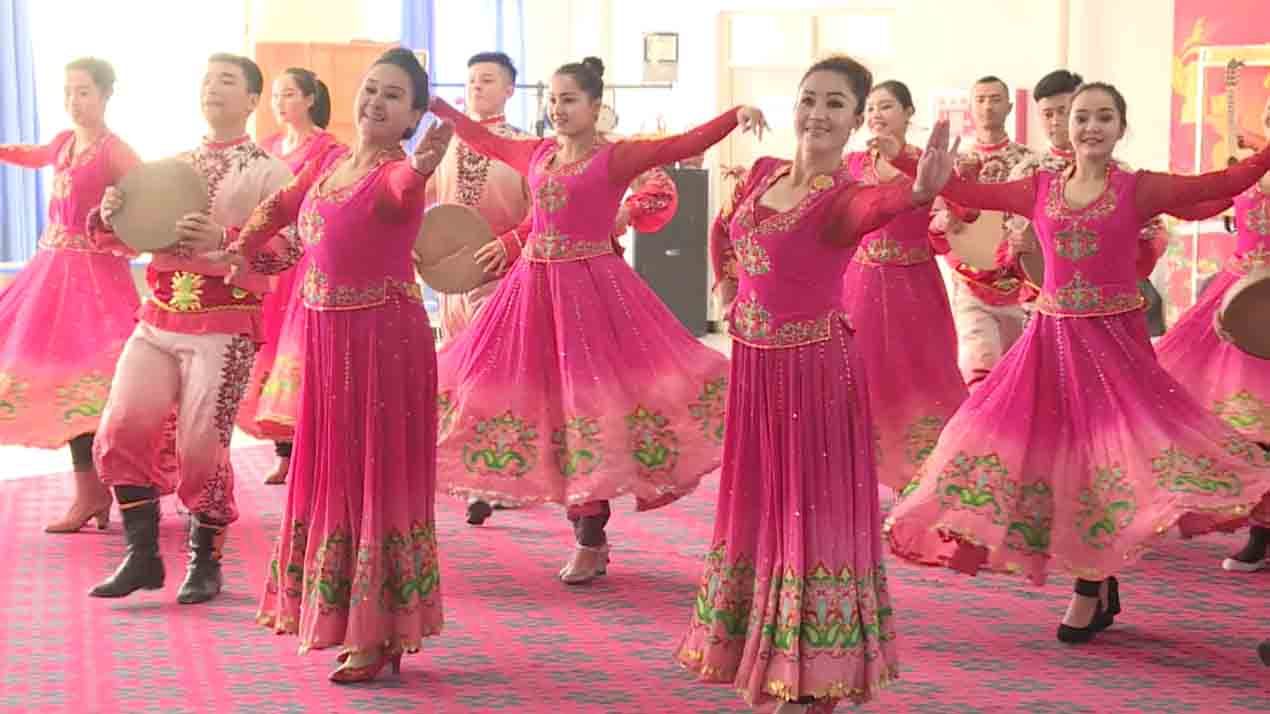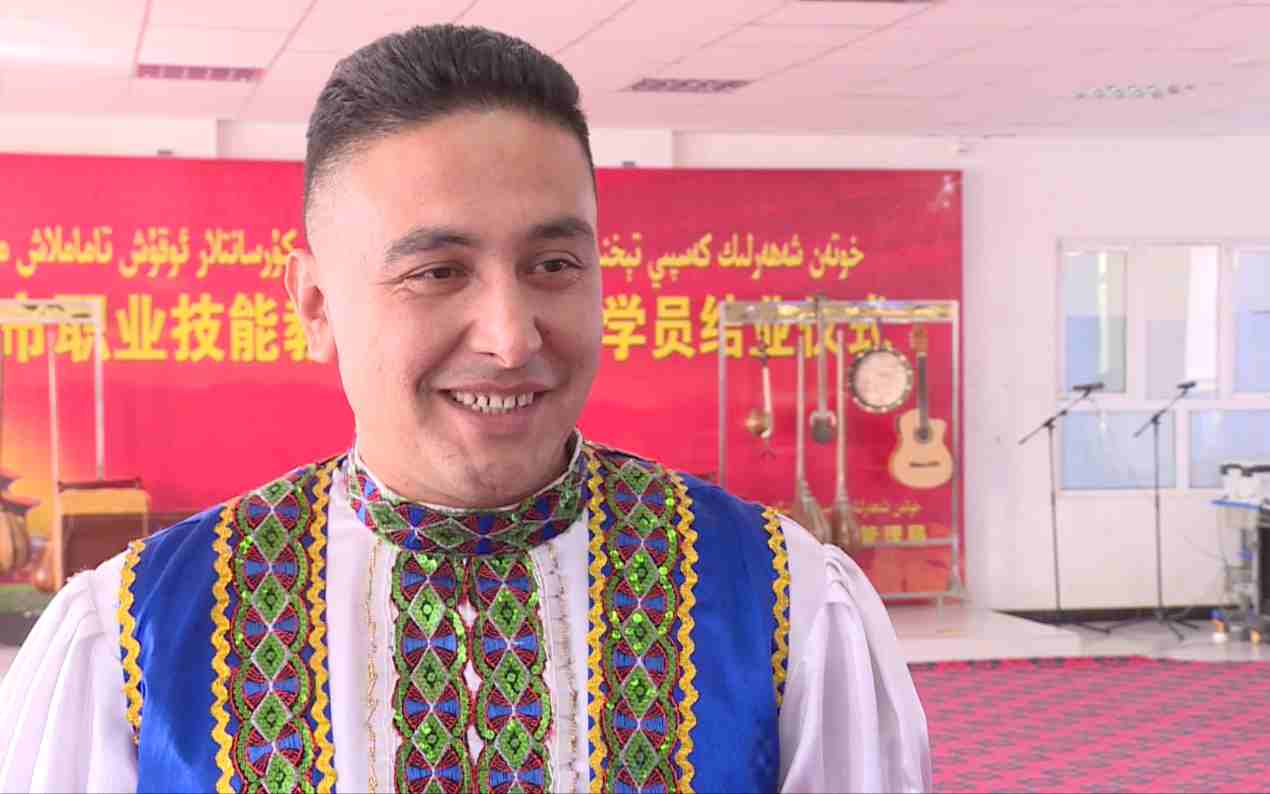
Education
17:43, 05-Nov-2018
Xinjiang's vocational training centers combat extremism
Updated
16:54, 08-Nov-2018
By Sun Tianyuan
01:49

Special vocational training centers have been established in northwestern China's Xinjiang Uygur Autonomous Region, for people to learn skills that will help them find work in the manufacturing, food and service industries.
For many trainees, the educational centers are a place to think about past transgressions. Some trainees had a promising future, but they gave up under the influence of extremism.
"I was going to study at a high school in Beijing, but I gave up my future under the influence of extremist ideology. And I regret my decision ever since," said a female trainee.
Some have regained the long-lost simple pleasures of life.
"Singing and dancing is in my blood since I was born. But I was forced to abandon my passion simply because it's forbidden by religious extremism,” said Adil Abudurex, who had picked up his lifetime hobby after he came to study at a center in Yutian county.
“It wasn't until I joined an art troupe at the center and realized how much I missed dancing,” the dancer grinned, “I'm learning new moves here every day, couldn't be happier."
"Every time I meet my family here, they keep telling me, learn well and come back sooner,” Abudurex said he would like to continue his work in art and culture to help others, using his dance to influence people and tell them to keep away from religious extremism.

Adil Abudurex, a trainee at an educational and vocational training center in Yutian county, tells CGTN his story of fighting extremism with choreography. /CGTN Photo
Adil Abudurex, a trainee at an educational and vocational training center in Yutian county, tells CGTN his story of fighting extremism with choreography. /CGTN Photo
It's never too late to realize one's dream when there is still hope, even starting a business and being your own boss. Ataura Mubarak opened his hand-pulled noodle restaurant, hiring 16 other trainees, five of whom are from poverty stricken families. Mubarak told CGTN that his salary went five-fold while helping his peers.
The former chef of the Hotan Hotel came to study at the center but he used to spread extremist doctrines. But now, Mubarak is spreading something more inspirational.
"I named my restaurant ‘hope' for many reasons. I hope trainees can change sooner so they may graduate earlier. And I hope my restaurant can help more of them, especially the ones living under economic hardship,” said Mubarak.
For trainees, graduation is not the end, but the beginning of a new life. Eventually, they will re-integrate with a modern and civilized world, and return to a life away from extremism.

SITEMAP
Copyright © 2018 CGTN. Beijing ICP prepared NO.16065310-3
Copyright © 2018 CGTN. Beijing ICP prepared NO.16065310-3